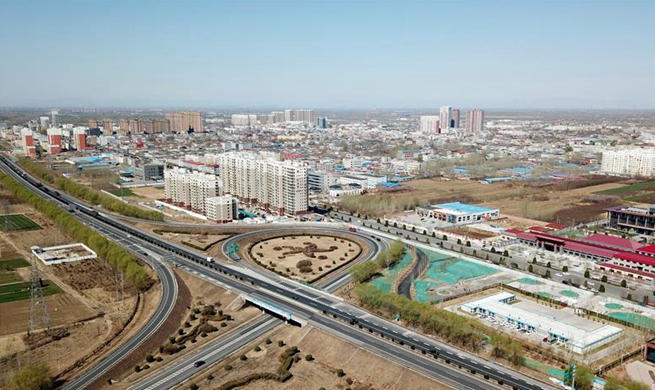PHNOM PENH, April 3 (Xinhua) -- Following a very strong economic performance last year, Cambodia will likely see moderate, but still robust growth, with the economy expected to expand about 7 percent this year and 6.8 percent next year, according to a new Asian Development Bank (ADB) report released on Wednesday.
With a slowdown forecast in the advanced economies, major destinations for Cambodian exports, growth will likely soften for Cambodia's exports and the tourism sector, said the ADB outlook 2019.
"Cambodia is projected to exhibit strong economic growth over the next two years, despite a weakening external environment," ADB country director for Cambodia Sunniya Durrani-Jamal said in a press conference here.
"A key driver of growth in the future will be improving the quality of Cambodia's human capital, including technical and vocational skills, to meet the demand of the private sector," she said.
Growth of industrial output is likely to ease from an estimated 10.8 percent in 2018 to 10.1 percent in 2019, the report said, adding that growth in services is expected to moderate slightly, from 6.9 percent last year to 6.8 percent in 2019.
The agriculture sector is projected to grow 1.7 percent this year, down from 1.8 percent last year, the report added.
Inflation is expected to average around 2.5 percent in both 2019 and 2020, it said, adding that buoyant investment inflows should more than offset the current account deficit and build up gross foreign reserves to 12 billion U.S. dollars in 2019, covering about 6 months of imports.
The report said the European Union's possible suspension of the Everything But Arms trade preferences for Cambodia, high credit growth, and a concentration in the real estate sector pose risks to financial sector stability.
Another key risk is a possible drought this year, it added.
The report also highlighted the critical challenge of the so-called skills gap, which is caused by a mismatch between skills supplied by the existing workforce and those demanded by employers.
"More qualified teachers are needed, as well as financial support for poor, high-performing students, to help keep them in school and learn skills demanded by employers in the digital age," it said.












